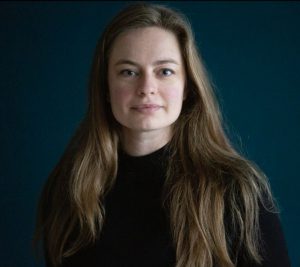By Rosalie Pronk is a researcher in the field of medical ethics at the Amsterdam UMC in the Netherlands.
As a PhD student in the field of physician-assisted dying for patients with mental illness in the Netherlands, I was often asked the question: why (on earth?!) are you interested in this topic? Besides me not really understanding this question–I mean, why would someone not be interested in this field?–I always felt a little bit awkward answering this question.
At the start of my PhD, I always answered by telling people that I studied Psychology and Philosophy, and how I loved that the topic was at the intersection of both fields. Although this was partly true, it did not feel like I was telling the whole truth. About a year into my PhD, I decided that it was time to tell my one of my supervisors what my real reason for interest in the topic was. With sweaty hands and a bit of a trembling voice, I told him what was going on; that I myself dealt with serious mental illness and had been receiving mental healthcare since I was about 12 years old, and that I also, from time to time, had to deal with suicidal thoughts and actions. The reason I told my supervisor was that I did not want my own issues to negatively impact the interviews that I was about to do with patients with mental illness who have a wish for physician-assisted dying. He responded very calmly, and we agreed that we would ask a psychiatrist in our project group to assist during the time of the interviews and interpretation of the data. The conversation ended with him telling me that he would not treat me any different from his other PhD students, which was a big relief to me!
We all want to do well at work, thrive, make the best out of your time as a PhD student. So, how does that work when you also suffer from mental illness? Let me tell you, I too struggled to show up for work every day, I too was completely absent at periods, I too had to go to therapy several times a week before and throughout the entire course of my PhD. But luckily enough I was given the freedom to make my own decisions about my attendance, and received support from my supervisors and colleagues. I was very lucky in that regard. I know that others are not that lucky, and (although this is hard) I believe it could be in your best interest not to tell anyone about your mental health issues. Although one of my supervisors responded in a way that made me feel comfortable, I also know stories from PhD students who were treated differently: threats of dismissal, disqualification of research results and papers, or just extremely blunt remarks. Not really the type of response you want to get when you open up about such a thing.
So why do I write this blogpost?
It is because I am committed to creating openness about the issue of mental illness in academia, and because I want to start a conversation about this issue between PhD students and supervisors.
Lastly, I want to offer my fellow early-career researchers a word of encouragement: if you want to and are in a position to do so, it is possible to do and complete your PhD well while suffering from a mental illness. It can even help you to become a better researcher, as my supervisor told me after I was done defending my thesis.
Take-away messages:
- Take care of yourself first. If you feel like a PhD is too much at the moment, don’t do it. There is more to life than that…
- If you are in a position to do so, try to maintain a healthy lifestyle while doing a PhD. As you will be behind a computer for most of the days, eating healthy and exercising will help you focus and feel better. If you are not able to do so because of your situation, don’t be too hard on yourself!
- If possible, talk to someone you trust (supervisor/colleague) in your department. Openness about the issue can certainly help you complete your research.
By Rosalie Pronk is a researcher in the field of medical ethics at the Amsterdam UMC in the Netherlands. Her research focuses on physician-assisted dying in the context of mental illness. She defended her PhD thesis on the 10th of December 2021.


